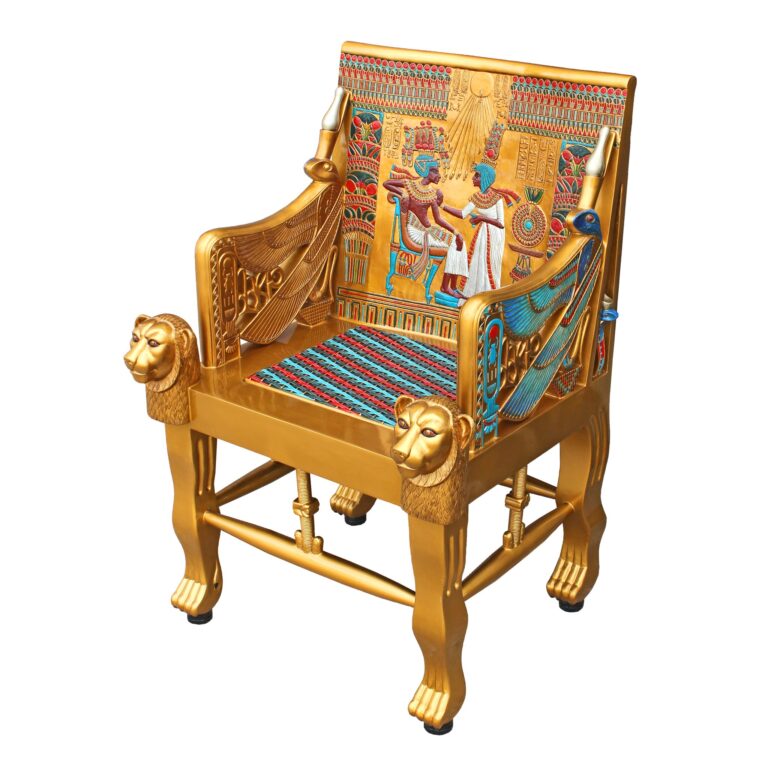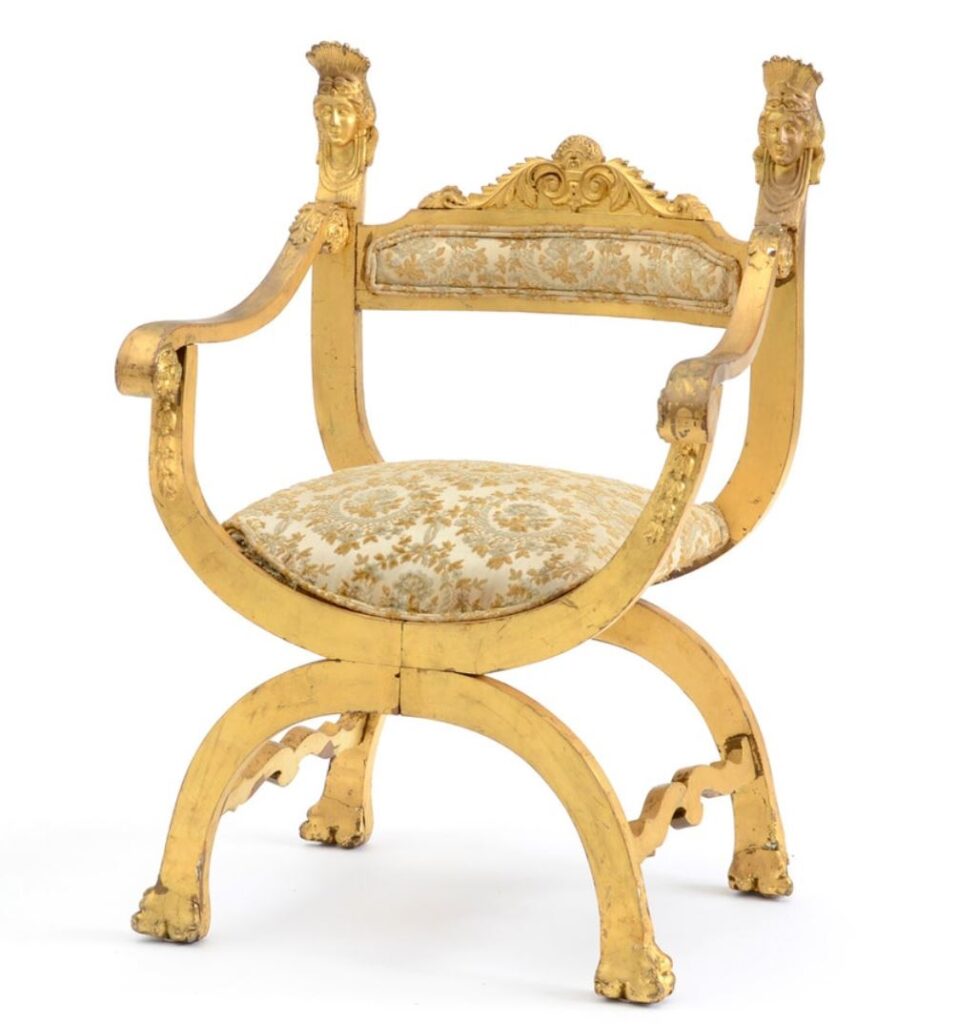
The First Chair – A Symbol

When did we as humans start to rest our bodies on a chair? Chairs have not always been a common item. In fact for centuries, a chair meant one thing, the symbol of power – The Throne. The first chairs that are the most similar to ours were invented in Ancient Egypt, but they weren’t’ common and only a symbol of power. The Greek and the Romans did spread the chair much more broadly.
The Evolution of Chairs
The first Egyptian chairs were remarkably similar to ours. Charis have, however, changed and adapted through the centuries. In Rome we had Curule Chairs, in Greece the Klismons Chair. The Curule Seat in particular was used for centuries even up to the 20th century as a symbol of political or military prestige and power. The chair was a unique symbol and was not even used to sit at a table to eat. Romans used a Roman divan (daybed) where the wealthy and powerful ate lying down sideways.

Pews, Benches and Chairs
Religion helped the spread of benches (church pews). Most household set at the table on benches with no backrest. These were the most common place to sit. Even in this case, however, the noble would sit in church on a bench while the population would stand in the back.
The Modern Chair
It was not until 1807 that the current design for chairs was invented by an Italian named Giuseppe Gaetano Descalzi. We call that cheaper and sturdy chair the Chiavari chair which is today still the main design used in most households.
Asia and Customs
Ever wondered why in Asia it is more common to eat sitting on the floor? In Asia, chairs did not make their first appearance until the 12th century. Benches were not common while comfortable pillows and carpets were. Even today the tradition of sitting on rugs or pillows is still respected in most households.